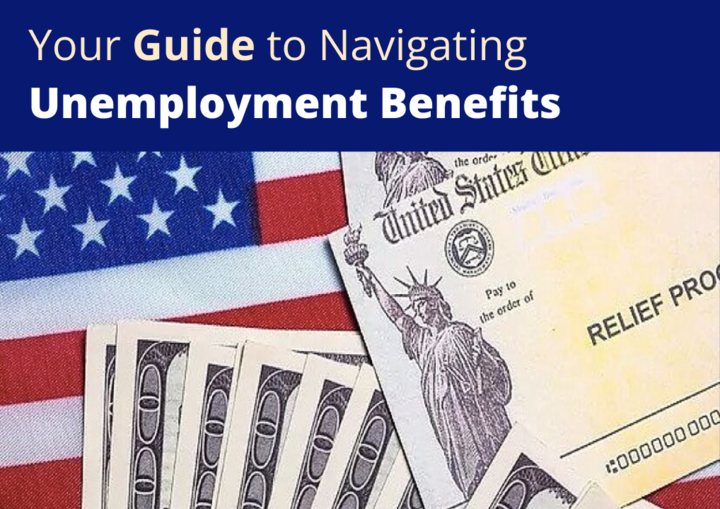In the realm of financial planning, one of the most critical considerations is ensuring the financial security of your loved ones. Life insurance serves as a cornerstone in this regard, providing a safety net that can alleviate the financial burdens that may arise in the event of an untimely death. The primary function of life insurance is to offer a death benefit to beneficiaries, which can be used to cover daily living expenses, pay off debts, or fund future needs such as education.
This financial cushion can be particularly vital for families who rely on a primary breadwinner, as it helps maintain their standard of living during a challenging time. Moreover, life insurance can also play a role in covering funeral expenses, which can be a significant financial burden. The average cost of a funeral in the United States can range from $7,000 to $12,000, depending on various factors such as location and service choices.
Without life insurance, families may find themselves grappling with these unexpected costs while also dealing with the emotional toll of losing a loved one. By securing a life insurance policy, individuals can ensure that their families are not only protected from immediate financial strain but also have the means to navigate their grief without the added stress of financial uncertainty.
Key Takeaways
- Financial protection for loved ones is essential to ensure their well-being in case of unexpected events.
- Younger individuals can benefit from lower premiums when purchasing life insurance, making it a cost-effective investment.
- Life insurance provides coverage for unexpected medical expenses, offering financial security during difficult times.
- Having life insurance brings peace of mind for the future, knowing that loved ones will be taken care of.
- Life insurance policies can build cash value over time, serving as a valuable asset for the policyholder.
- Life insurance can protect against debt and loans, preventing financial burden for loved ones.
- Ensuring your legacy for future generations is possible through life insurance, providing a lasting impact on your family’s financial security.
Lower Premiums for Younger Individuals
One of the most compelling reasons for younger individuals to consider life insurance is the significantly lower premiums available to them. Insurance companies assess risk based on various factors, including age, health status, and lifestyle choices. Younger individuals typically present a lower risk profile, as they are less likely to have developed chronic health conditions or engage in high-risk activities that could lead to premature death.
As a result, securing a life insurance policy at a young age can lock in lower rates that may not be available later in life. For instance, a healthy 30-year-old may pay substantially less for a term life insurance policy compared to someone who waits until they are 50. This difference can amount to hundreds or even thousands of dollars over the life of the policy.
Additionally, purchasing life insurance at a younger age allows individuals to build a financial foundation early on, ensuring that they have adequate coverage as their responsibilities grow—whether that means starting a family, buying a home, or taking on other financial commitments. By acting sooner rather than later, younger individuals can take advantage of favorable rates and secure their financial future.
Coverage for Unexpected Medical Expenses
Life insurance is often associated with providing financial support to beneficiaries after the policyholder’s death; however, it can also serve as a strategic tool for managing unexpected medical expenses during one’s lifetime. Certain types of life insurance policies, such as whole life or universal life insurance, come with living benefits that allow policyholders to access a portion of their death benefit while still alive if they face terminal illness or chronic health issues. This feature can be invaluable in covering medical bills that arise from serious health conditions.
Consider the case of an individual diagnosed with a terminal illness who faces mounting medical expenses and potential loss of income due to their condition. By utilizing the living benefits of their life insurance policy, they can alleviate some of the financial strain associated with treatment costs and other related expenses. This access to funds can provide not only financial relief but also peace of mind during an incredibly challenging time.
Furthermore, having this safety net allows individuals to focus on their health and well-being rather than being overwhelmed by financial concerns.
Peace of Mind for the Future
The psychological benefits of having life insurance extend beyond mere financial protection; they encompass a profound sense of peace of mind for both policyholders and their families. Knowing that loved ones will be taken care of in the event of an unexpected tragedy can significantly reduce anxiety about the future. This peace of mind is particularly important for parents who worry about their children’s well-being and education should something happen to them.
Additionally, life insurance can serve as a tool for long-term planning. Individuals who have secured adequate coverage can approach their financial goals with greater confidence, knowing that they have taken steps to protect their family’s future.
This assurance allows them to focus on other aspects of their lives—such as career advancement or personal development—without the constant worry about what might happen if they were no longer around.
The emotional security provided by life insurance is an often-overlooked benefit that contributes significantly to overall well-being.
Building Cash Value Over Time
Certain types of life insurance policies, particularly whole life and universal life insurance, offer the added benefit of building cash value over time. This cash value component acts as a savings account within the policy, accumulating interest and providing policyholders with access to funds during their lifetime. As premiums are paid, a portion goes toward building this cash value, which can be borrowed against or withdrawn if needed.
For example, an individual who has been paying into a whole life policy for several years may find that they have accumulated a substantial cash value that can be used for various purposes—such as funding a child’s education, making a down payment on a home, or even starting a business. This dual function of providing both life insurance coverage and an investment component makes certain policies particularly appealing for those looking to combine protection with wealth-building strategies. Furthermore, the cash value grows on a tax-deferred basis, allowing individuals to maximize their savings potential without immediate tax implications.
Protection Against Debt and Loans
In today’s world, many individuals carry various forms of debt—be it student loans, mortgages, or credit card balances. Life insurance can serve as an essential tool for protecting loved ones from inheriting these financial burdens in the event of one’s death. When a policyholder passes away, the death benefit can be used to pay off outstanding debts, ensuring that family members are not left grappling with financial obligations that could jeopardize their stability.
For instance, consider a young couple who has recently purchased their first home and taken out a mortgage. If one partner were to pass away unexpectedly, the surviving partner could face significant challenges in maintaining mortgage payments without the deceased’s income. A life insurance policy would provide the necessary funds to pay off the mortgage, allowing the surviving partner to remain in their home without the added stress of financial strain during an already difficult time.
This protective aspect of life insurance underscores its importance not only as a safety net but also as a proactive measure against potential financial hardship.
Ensuring Your Legacy for Future Generations
Life insurance is not merely about providing immediate financial support; it also plays a crucial role in legacy planning.
Many individuals wish to leave behind more than just memories; they aspire to create a lasting impact on future generations through financial gifts or contributions toward education and other significant milestones.
Life insurance can facilitate this goal by ensuring that beneficiaries receive a substantial death benefit that can be used for various purposes.
For example, grandparents may choose to take out a life insurance policy specifically designed to fund their grandchildren’s education. By naming their grandchildren as beneficiaries, they can ensure that funds are available for college tuition or other educational expenses when the time comes. This thoughtful approach not only provides financial assistance but also reinforces family values around education and personal growth.
Additionally, life insurance proceeds are generally received tax-free by beneficiaries, allowing them to maximize the benefits without worrying about tax implications. In conclusion, life insurance serves multiple purposes beyond its primary function of providing financial protection for loved ones after death. From offering lower premiums for younger individuals to covering unexpected medical expenses and ensuring peace of mind for the future, its benefits are far-reaching.
The ability to build cash value over time and protect against debt further enhances its appeal as a comprehensive financial tool. Ultimately, life insurance stands as an essential component in legacy planning, allowing individuals to leave behind not just memories but also tangible support for future generations.
Life Insurace Powered By eFinancial
FAQs
What is life insurance?
Life insurance is a contract between an individual and an insurance company, where the individual pays regular premiums in exchange for a lump sum payment to their beneficiaries upon their death.
Why should I get life insurance early?
Getting life insurance early can help you lock in lower premiums while you are young and healthy. It also provides financial protection for your loved ones in case of your untimely death.
What are the benefits of getting life insurance early?
Some benefits of getting life insurance early include lower premiums, financial security for your loved ones, potential cash value accumulation, and the ability to lock in coverage regardless of future health issues.
What are the different types of life insurance available for early purchase?
There are various types of life insurance available for early purchase, including term life insurance, whole life insurance, universal life insurance, and variable life insurance.
How much life insurance coverage do I need?
The amount of life insurance coverage you need depends on your individual circumstances, such as your income, debts, and financial goals. It’s important to assess your needs with the help of a financial advisor or insurance agent.
Can I get life insurance if I have pre-existing health conditions?
It is possible to get life insurance with pre-existing health conditions, although it may affect the cost of premiums. Some insurance companies offer policies specifically designed for individuals with certain health conditions.
What are the consequences of not getting life insurance early?
Not getting life insurance early can result in higher premiums as you age, potential difficulty in obtaining coverage if you develop health issues, and leaving your loved ones financially vulnerable in the event of your death.







